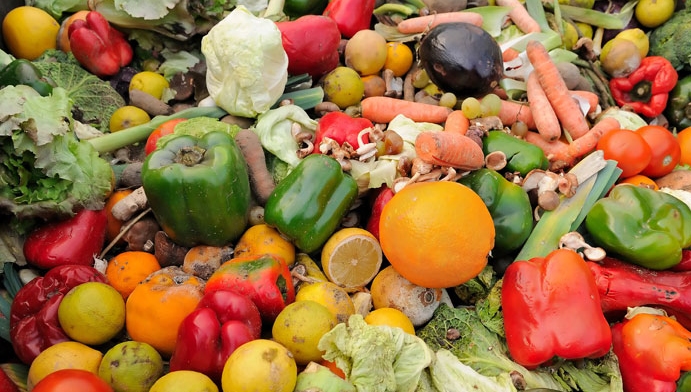British families squander twice as much money on food waste each month as they think they do, according to YouGov research commissioned by Sainsbury's.
The supermarket said it found that 81% of families of four believe they throw away less than £30 worth of food a month, when in reality they waste nearly double that at £58.30 a month, on average.
At the same time, 93% of Britons believe they waste less than five meals a month, when on average they actually waste double that - the equivalent of 11 meals per month.
The environmental and financial impact of food waste has came to the fore recently with chef and campaigner Hugh Fearnley-Whittingstall’s TV series, Hugh’s War on Waste, which has blamed supermarkets for much of the food thrown away.
Sainsbury’s this week started a partnership with Swadlincote in Derbyshire, where it is spending £1m to cut food waste by trialling new technology. The ‘Waste Less, Save More’ project aims to reduce food waste by 50% and save the average household £350 a year.
In the first steps of working with the 35,000-strong town, it will be giving a free fridge thermometer to all households, to ensure appliances are at their optimum temperature.
Swadlincote beat 188 areas in the UK to be awarded the project and Sainsbury’s now plans to spend £10m over the next five years to develop similar schemes across the UK.
Mike Coupe, Sainsbury’s chief executive, said: “Food waste is one of society’s biggest environmental issues at the moment and there is a genuine passion across the UK to tackle it. We hope to work with shoppers and householders to find ways of making behavioural change, which is key to long-term success.”

The supermarket - which in Swadlincote has one large store and three smaller ones - is also looking at special ‘leftover labels’ that display a mini countdown to tell householders when food needs to be eaten before going off. Throughout the project it will also look at the role packaging and labelling can have on food waste.
Later, it hopes to test smarter kitchen appliances, for example, a smart fridge so that people can check on their phone what they have at home, and a ‘zero waste’ personal shopper who will help residents shop for what they actually need.
Trewin Restorick of the environment charity Hubbub, who was part of the judging panel that selected Swadlincote, said: “It is a very interesting experiment and quite unusual that it is a supermarket that has taken this leap. Swadlincote won because of its community spirit. Hopefully this will go on to have a national impact.”
Just over 1% of food wasted in the UK – 200,000 tonnes – comes from stores,according to figures from the government-backed Waste Resources Action Programme (Wrap).
Of the estimated 15m tonnes of food thrown away in the UK each year, more than half is disposed of in people’s homes. Fearnley-Whittingstall has criticised supermarkets for excessively exacting cosmetic standards of vegetables.
Morrisons said this week it is is selling wonky cauliflowers as this year’s mild weather has led to many of the British brassica’s florets separating into an uneven shape. The wonky cauliflowers will be supplied by Riviera Produce, which has struggled to sell its cauliflowers, resulting in over 2m cauliflowers going to waste.
David Simmons from Riviera Produce said: “We need more retailers to relax their specifications about the cauliflowers’ appearance to help farmers in very tough times.”
Edie.net
